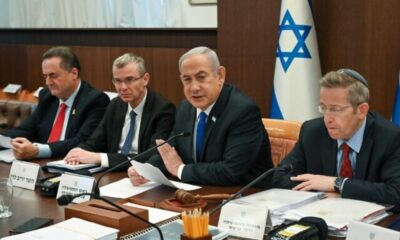World
Dominic Raab resigns as UK deputy PM over bullying complaints
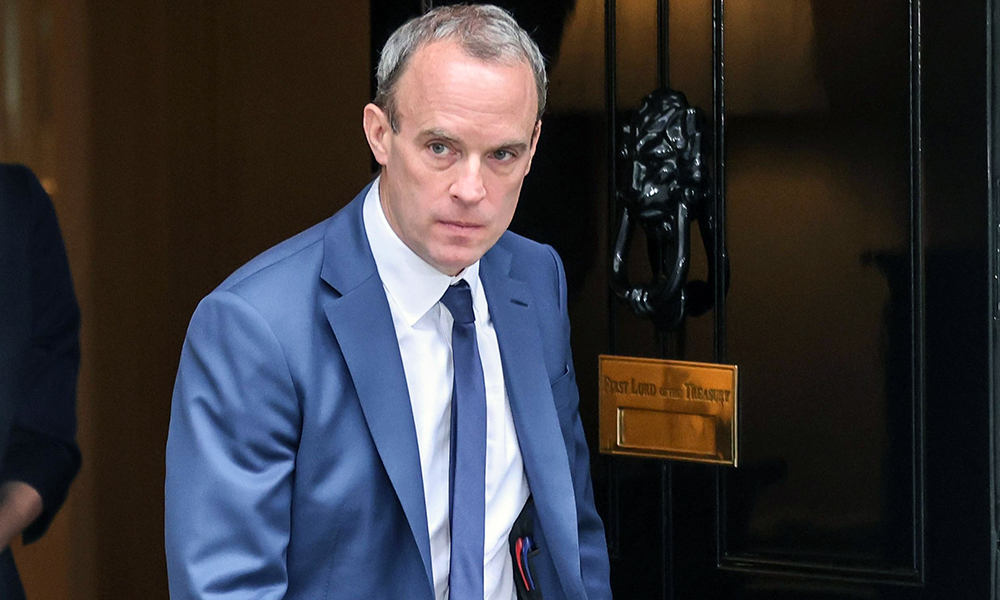
British Deputy Prime Minister Dominic Raab resigned from the government on Friday following an independent investigation into complaints that he bullied colleagues, the latest scandal to force out one of Prime Minister Rishi Sunak’s top ministers, Reuters reported.
The loss of the third senior minister over their personal conduct in the last six months will damage Sunak’s efforts to revive the governing Conservative Party’s fortunes and is a major embarrassment as he had entered Downing Street in October promising a government of integrity.
Raab resigned in a letter to the prime minister before the report was made public, and his departure is a setback for Sunak just two weeks ahead of English local council elections where his Conservatives are predicted to fare badly, read the report.
“I called for the inquiry and undertook to resign if it made any finding of bullying whatsoever,” Raab’s letter said. “I believe it is important to keep my word.”
Sunak said in a letter in reply that he accepted Raab’s resignation with deep sadness but said it was important that ministers uphold the highest of standards.
As deputy prime minister, Raab had no formal powers but stepped in for the prime minister if he was away from parliament or incapacitated. However he was a close political ally of Sunak and helped launch his campaign to be prime minister last summer.
The resignation will do little to improve the public perception of his government following the scandal-ridden tenure of Boris Johnson and the chaotic economic policies that brought down Liz Truss after less than two months, read the report.
The five month investigation into Raab’s behaviour heard evidence from multiple government officials about complaints of bullying at three different departments.
The independent report by lawyer Adam Tolley found that Raab had acted in a way that was “intimidating” and “persistently aggressive” while at the Foreign Office.
It said while at the Justice Ministry he had gone “further than was necessary or appropriate in delivering critical feedback and also insulting, in the sense of making unconstructive critical comments about the quality of work done”.
“(Raab) has been able to regulate this level of ‘abrasiveness’ since the announcement of the investigation,” Tolley wrote. “He should have altered his approach earlier.”
Raab requested the investigation in November following formal complaints about his behaviour by government officials. He said he felt “duty bound” to accept the outcome of the inquiry but also staunchly defended his conduct.
He said the report had concluded he had not once sworn, shouted or physically intimidated anyone in four and a half years, and had dismissed all but two of the claims against him.
Raab apologised for any unintended stress or offence caused but said the decision to set threshold for bullying so low “set a dangerous precedent” for the conduct of good government, Reuters reported.
This will “have a chilling effect on those driving change on behalf of your government – and ultimately the British people”, he said in his letter.
Raab referred to the two incidents where there was a finding of bullying against him — one at the Foreign Office in dealing with a senior diplomat’s handling of the Brexit negotiation over Gibraltar, and one where he gave critical feedback during an earlier stint at the Ministry of Justice from 2021 to 2022.
Keir Starmer, the leader of the main opposition Labour Party, accused Sunak of “weakness” for failing to sack his deputy rather than letting him resign.
Another of Sunak’s senior ministers, Gavin Williamson, also quit in November after bullying allegations, and the prime minister sacked Conservative Party chair Nadhim Zahawi in January after he was found to have broken the ministerial code over his openness about his tax affairs.
Sunak is facing his own investigation by parliament’s standards watchdog into his behaviour over whether he properly declared his wife’s shareholding in a childcare company which stands to benefit from new government policy.
World
Hong Kong tycoon Jimmy Lai sentenced to 20 years in jail in national security trial
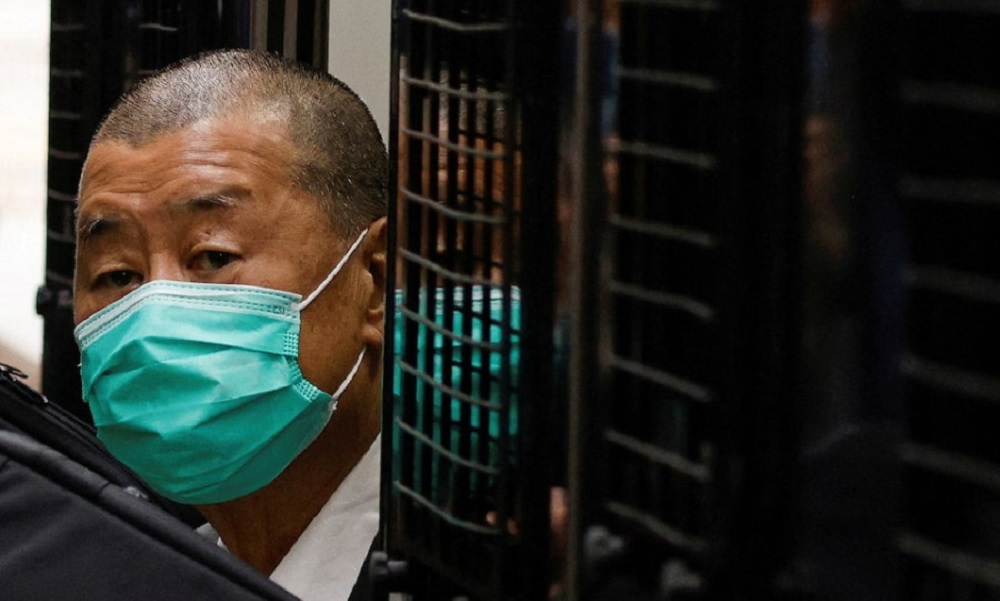
Hong Kong’s most prominent media tycoon Jimmy Lai was sentenced on Monday to a total of 20 years in jail on national security charges comprising two counts of conspiracy to collude with foreign forces and one of publishing seditious materials.
The sentence ends a legal saga spanning almost five years, and Hong Kong’s most high-profile national security hearing. Lai, founder of the now-shuttered Apple Daily newspaper, was first arrested in August 2020 and convicted last year, Reuters reported.
Lai’s sentence of 20 years was within the most severe penalty “band” of 10 years to life imprisonment for offences of a “grave nature”.
The Hong Kong court said Lai’s sentence was enhanced by the fact that he was “mastermind” and driving force behind foreign collusion conspiracies.
The 78-year-old, a British citizen, has denied all the charges against him, saying in court he is a “political prisoner” facing persecution from Beijing.
Lai’s plight has been criticised by global leaders, opens new tab including U.S. President Donald Trump and British Prime Minister Keir Starmer, spotlighting a years-long national security crackdown in the China-ruled Asian financial hub, following mass pro-democracy protests in 2019.
“The rule of law has been completely shattered in Hong Kong. Today’s egregious decision is the final nail in the coffin for freedom of the press in Hong Kong,” said Jodie Ginsberg, CEO of the Committee to Protect Journalism.
“The international community must step up its pressure to free Jimmy Lai if we want press freedom to be respected anywhere in the world.”
Lai arrived to court in a white jacket, with hands held together in a praying gesture as he smiled and waved at supporters.
The case has drawn calls for the long-standing critic of the Chinese Communist Party, who friends and supporters say is in frail health, to be freed.
“The harsh 20-year sentence against 78-year-old Jimmy Lai is effectively a death sentence,” said Elaine Pearson, Asia Director of Human Rghts Watch. “A sentence of this magnitude is both cruel and profoundly unjust.”
Dozens of Lai’s supporters queued for several days to secure a spot in the courtroom, with scores of police officers, sniffer dogs and police vehicles including an armoured truck and a bomb disposal van deployed around the area.
“I feel that Mr. Lai is the conscience of Hong Kong,” said a man named Sum, 64, who was in the queue.
“He speaks up for Hong Kong people, and even for many wrongful cases in mainland China and for the development of democracy. So I feel that spending a few days of my own freedom sleeping out here is better than seeing him locked up inside.”
Starmer raised the case of Lai, who holds British citizenship, in detail during a tête-à-tête with Chinese leader Xi Jinping last month in Beijing’s Great Hall of the People, according to people briefed on the discussions. Britain’s national security adviser, Jonathan Powell, and China’s foreign minister, Wang Yi, were also present.
“I raised the case of Jimmy Lai and called for his release,” Starmer told the UK parliament after his trip.
Trump too, raised Lai’s case with Xi during a meeting last October. Several Western diplomats told Reuters that negotiations to free Lai would likely begin in earnest after he is sentenced, and depending on whether Lai will appeal.
LIFE IN PRISON?
Lai’s family, lawyer, supporters and former colleagues have warned that he could die in prison as he suffers from health conditions including heart palpitations and high blood pressure.
Besides Lai, six former senior Apple Daily staffers, an activist and a paralegal will also be sentenced.
“Jimmy Lai’s trial has been nothing but a charade from the start and shows total contempt for Hong Kong laws that are supposed to protect press freedom,” said the Committee to Protect Journalists’ Asia-Pacific Director Beh Lih Yi.
Beijing, however, says Lai has received a fair trial and all are treated equally under the national security law that has restored order to the city.
World
Trump signs order threatening tariffs on nations doing business with Iran

U.S. President Donald Trump signed an executive order on Friday that may impose a 25% tariff on countries that do business with Iran.
The order comes as tensions between Iran and U.S. continue to simmer even as the two countries engaged in talks this week.
World
Trump rejects Putin offer of one-year extension of New START deployment limits
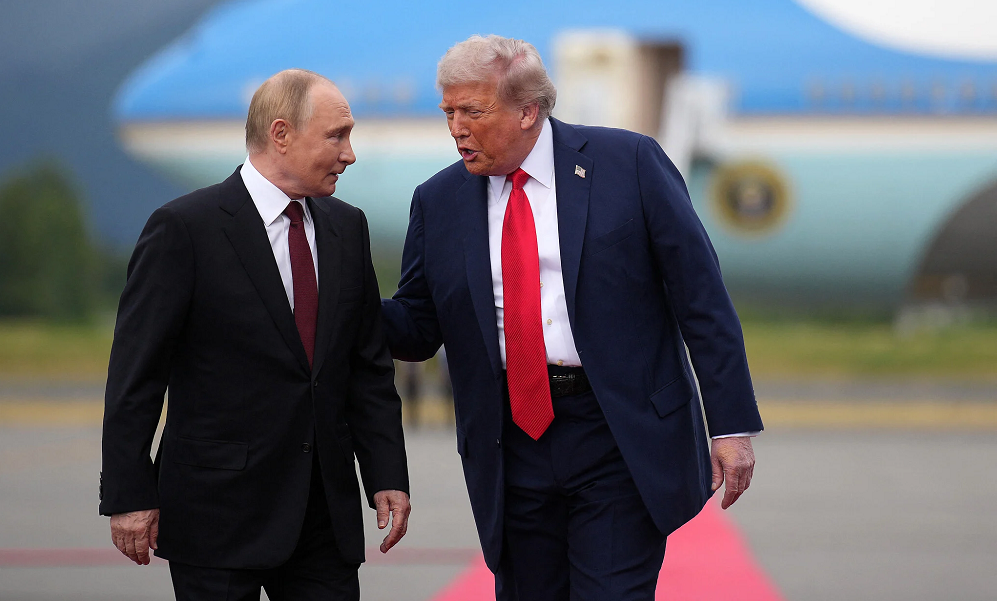
U.S. President Donald Trump on Thursday rejected an offer from his Russian counterpart to voluntarily extend the caps on strategic nuclear weapons deployments after the treaty that held them in check for more than two decades expired.
“Rather than extend “New START … we should have our Nuclear Experts work on a new, improved and modernized Treaty that can last long into the future,” Trump wrote in a post on his Truth Social platform, Reuters reported.
Arms control advocates warn that the expiration of the treaty will fuel an accelerated nuclear arms race, while U.S. opponents say the pact constrained the U.S. ability to deploy enough weapons to deter nuclear threats posed by both Russia and China.
Trump’s post was in response to a proposal by Russian President Vladimir Putin for the sides to adhere for a year to the 2010 accord’s limit of 1,550 warheads on 700 delivery systems — missiles, aircraft and submarines.
New START was the last in a series of arms control treaties between the world’s two largest nuclear weapons powers dating back more than half a century to the Cold War. It allowed for only a single extension, which Putin and former U.S. President Joe Biden agreed to for five years in 2021.
In his post, Trump called New START “a badly negotiated deal” that he said “is being grossly violated,” an apparent reference to Putin’s 2023 decision to halt on-site inspections and other measures designed to reassure each side that the other was complying with the treaty.
Putin cited U.S. support for Ukraine’s battle against Russia’s 2022 full-scale invasion as the reason for his decision.
White House spokeswoman Karoline Leavitt told reporters that the U.S. would continue talks with Russia.
BOTH SIDES SIGNAL OPENNESS TO TALKS
Earlier, Kremlin spokesman Dmitry Peskov said Russia was still ready to engage in dialogue with the U.S. if Washington responded constructively to Putin’s proposal.
“Listen, if there are any constructive replies, of course we will conduct a dialogue,” Peskov told reporters.
The UN has urged both sides to restore the treaty.
Besides setting numerical limits on weapons, New START included inspection regimes experts say served to build a level of trust and confidence between the nuclear adversaries, helping make the world safer.
If nothing replaces the treaty, security analysts see a more dangerous environment with a higher risk of miscalculation. Forced to rely on worst-case assumptions about the other’s intentions, the U.S. and Russia would see an incentive to increase their arsenals, especially as China plays catch-up with its own rapid nuclear build-up.
Trump has said he wants to replace New START with a better deal, bringing in China. But Beijing has declined negotiations with Moscow and Washington. It has a fraction of their warhead numbers – an estimated 600, compared to around 4,000 each for Russia and the U.S.
Repeating that position on Thursday, China said the expiration of the treaty was regrettable, and urged the U.S. to resume dialogue with Russia on “strategic stability.”
UNCERTAINTY OVER TREATY EXPIRY DATE
There was confusion over the exact timing of the expiry, but Peskov said it would be at the end of Thursday.
Russia’s Foreign Ministry said Moscow’s assumption was that the treaty no longer applied and both sides were free to choose their next steps.
It said Russia was prepared to take “decisive military-technical countermeasures to mitigate potential additional threats to national security” but was also open to diplomacy.
That warning was in apparent response to the possibility that Trump could expand U.S. nuclear deployments by reversing steps taken to comply with New START, including reloading warheads on intercontinental ballistic missiles and submarine-launched missiles from which they were removed.
A bipartisan congressionally appointed commission in 2023 recommended that the U.S. develop plans to reload some or all of its reserve warheads, saying the country should prepare to fight simultaneous wars with Russia and China.
Ukraine, which has been at war with Russia since Moscow’s 2022 invasion, said the treaty’s expiry was a consequence of Russian efforts to achieve the “fragmentation of the global security architecture” and called it “another tool for nuclear blackmail to undermine international support for Ukraine.”
Strategic nuclear weapons are the long-range systems that each side would use to strike the other’s capital, military and industrial centres in the event of a nuclear war. They differ from so-called tactical nuclear weapons that have a lower yield and are designed for limited strikes or battlefield use.
If left unconstrained by any agreement, Russia and the U.S. could each, within a couple of years, deploy hundreds more warheads, experts say.
“Transparency and predictability are among the more intangible benefits of arms control and underpin deterrence and strategic stability,” said Karim Haggag, director of the Stockholm International Peace Research Institute.
-

 Latest News3 days ago
Latest News3 days agoAfghanistan to grant one- to ten-year residency to foreign investors
-

 Sport4 days ago
Sport4 days agoIndonesia shock Japan to reach historic AFC Futsal Asian Cup final
-

 Sport3 days ago
Sport3 days agoIran clinch AFC Futsal Asian Cup 2026 in penalty shootout thriller
-

 Latest News3 days ago
Latest News3 days agoAfghanistan says Pakistan is shifting blame for its own security failures
-

 International Sports2 days ago
International Sports2 days agoWinter Olympics gain momentum as medal table takes shape
-

 Latest News5 days ago
Latest News5 days agoAfghanistan facing deepening hunger crisis after US Aid Cuts: NYT reports
-
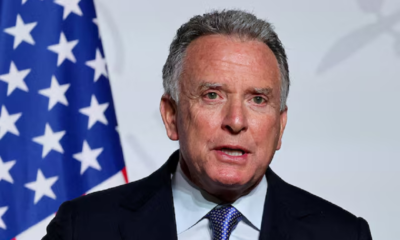
 World5 days ago
World5 days agoUS, Ukraine, Russia delegations agree to exchange 314 prisoners, says Witkoff
-

 Latest News3 days ago
Latest News3 days agoTraffic police receive new cars








